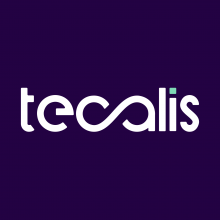
There are 15 Companies in Spain
that provide Hosting and Cloud Services!
Spain is one of the most important ICT markets in Europe, in terms of volume. In 2025, the net worth of the entire sector was estimated at around $62.9 billion. This makes it an important national economy. According to a report from ICEX, there are more than 34,000 ICT companies in Spain that engage 550k+ workers in this field.
Discover Top IT Companies in Spain specialized in Hosting and Cloud and other related services. Find the best IT service providers for your projects.
Entrepreneurs often struggle to differentiate between cloud and hosted services, which may seem similar but differ in processes. Understanding these differences can help choose the right for your business. Pick the right home for your website involves considering technical aspects, reliability, cost, and customer support and other factors.
There are more than 330,000 web hosting providers all around the world, and this number is expected to grow as the Internet expands. Even with the fierce competition, new providers continue to enter the market. At the same time, data reveals that approximately 60% of all corporate data is now stored in the cloud. It has also witnessed a 10% increase compared to the previous year, 2021.
Handpicked companies • No obligation to hire • 100% risk-free
Featured Companies in Spain
This month, the following Hosting and Cloud companies managed to provide an outstanding service and support. It's worth taking a look.
Explore Top Hosting and Cloud Companies in Spain

TechGropse Pvt. Ltd. Verified Company
Las Palmas, Spain Head office in: United Arab Emirates
Techgropse is a leading Mobile App and Web Development Company, dedicated to turning innovative ideas into remarkable digital solutions. 500+ Clients
Best Mobile Apps Development Company in Dubai
AlamedaDev provides full-service software and mobile application solutions on-demand. We provide Modern Software Development and AI solutions.
AI-driven automation & workflow solutions to boost efficiency, optimize operations, and empower AI-powered future workers for smarter business growth.
Services:
Efficient operation through advanced IT solutions.
NUCLI experts, created in 2004 in Barcelona with a clear vocation: to become a leading company in the area of Oracle Database Expert Services
Libnamic uses technology to make business and institutions more efficient and effective in their goals. We specialize in public sector projects, often...
Our mission is to be the nearshore trusted partner companies think of, to transform business ideas into high-quality digital solutions.
Web Hosting Provider and Domain Registrar
Blockchain technology in your business, easy.
Filter Hosting and Cloud Companies in Spain by Cities
Find the right tech company near you or from a specific city. Some of the best companies might be located in smaller cities.
Find more Hosting and Cloud companies around the world
TechBehemoths is the world's most advanced and user-friendly platform to match IT Companies with real clients without hustle.
The ICT Industry in Spain: Insights and Data
Spain is one of the most important ICT markets in Europe, in terms of volume. In 2025, the net worth of the entire sector was estimated at around $62.9 billion. This makes it an important national economy.
According to a report from ICEX, there are more than 34,000 ICT companies in Spain that engage 550k+ workers in this field.
Additionally, the digital economy contribution of Spain, which includes the ICT industry, contributed 26% of Spain’s GDP in 2024. Due to its geographical location and favorable IT climate, the industry evolves with big steps, and sometimes it appears that it overwhelms the infrastructure.
Why You Should Work With a Spanish Company
Spain is great for all types of IT professionals and companies - from digital nomads and startups, up to big corporations, you can find them all in Spain. The best part is that social education adds great value to digital business culture and develops the environment and industry, making it a great opportunity both for businesses and professionals.
Another reason why Spanish IT companies are a good option is the hourly rate and reliability. According to Payscale, the average hourly rate of a developer is around 25.43 Euros, which is below the European average. Also, the good business tradition will ensure you a sufficient and healthy experience with your projects.
What You Should Be Aware of When Working With Spanish IT Companies
Although it has experienced a huge growth in the sector, Spain has a shortage of qualified, experienced information technology (IT) professionals to meet the growing demand, especially in the major cities, which dominate the IT market in Spain. This means that, together with great project experience, there is a risk of average project execution, in spite of having higher expectations.
Are Spanish Companies Reliable?
In terms of reliability, Spain has never been the top leading country, but also not the last. Due to social culture, it is known that Spanish companies like to bargain and negotiate the prices & services. While some may find this frustrating, most of the businesses like this feature, as it’s one of the business fundamental practices.
How the Spanish IT Industry Relates to the Neighboring Countries
With all the IT industry growth Spain has registered in the last few years, the country competes with France, which has also managed to score impressive numbers in the IT sector. However, the markets are slightly different for both of them, including but not limited to linguistic differences. Probably, the cases of Spain and France are two extremely important cases where culture crosses the IT industry.
Overall, Spain has managed to keep the IT industry growing, even with the human resources challenges that it is facing. And it is expected in the coming years that the regional IT competition will lead to a surprise evolution and increased attractiveness to potential clients.
Most of the Spanish IT companies are already registered on TechBehemoths and can be found on their dedicated page. Feel free to contact any web agency, IT firm, or software company you consider that can help your project.
What is Hosting and Cloud and what are its benefits for your projects?
Entrepreneurs often struggle to differentiate between cloud and hosted services, which may seem similar but differ in processes. Understanding these differences can help choose the right for your business. Pick the right home for your website involves considering technical aspects, reliability, cost, and customer support and other factors.
There are more than 330,000 web hosting providers all around the world, and this number is expected to grow as the Internet expands. Even with the fierce competition, new providers continue to enter the market.
At the same time, data reveals that approximately 60% of all corporate data is now stored in the cloud. It has also witnessed a 10% increase compared to the previous year, 2021.
Cloud Services
Cloud services are computing services provided by third-party hosts through the internet and on-demand. They allow customers to access and utilize remote computing resources effortlessly. There are three main categories of cloud: Software as a service (SaaS), Platform as a service (PaaS), Infrastructure as a service (IaaS).
Benefits of Using Cloud-Based Services
Cloud services offer several advantages that are not available with hosted solutions:
-
IT Optimization: With cloud services, the provider is responsible for building and maintaining all the hardware, so your IT department doesn't have to manage servers or install and update software on individual computers. Additionally, the provider is responsible for ensuring security and resolving any problems that might come up.
-
Budget-friendly approach: Cloud services offer a cost-efficient approach where you only pay for what you use. There is no need to invest in hardware or purchase software licences that may end up being unused by your team.
-
Business system integration: To integrate various third-party cloud solutions, you can streamline workflows and enhance team collaboration and productivity. For instance integrating your cloud communications platform with a CRM. Doing so ensures employees have access to customer information before they answer incoming calls and automatically logs all calls into the CRM.
-
Increase agility and scalability: Cloud services let you make changes in just a few clicks, whether you need to shift workflows, add new features and functionality, or change the number of users.
-
Support AI, predictive analytics, and IoT: With your data in the cloud, you can easily apply these advanced technologies to improve efficiency, gain new insights, and future-proof your business.
-
Support remote workforces: The workforce can access cloud services anytime, anywhere, using any device, with just an internet connection and login credentials.
Hosting Services
Hosted services, much like cloud-based solutions, are managed by a third-party provider and accessed through the internet. With hosted solutions, the provider owns and maintains physical servers in a private location rather than relying on a public cloud. This allows the service to be accessed online without the need for installing hardware or software. Users typically access it through a virtual private network or remote desktop.
Benefits of Hosting Services
Hosted services offer some of the same advantages as cloud solution, including:
-
Remote access and the ability to integrate with certain other cloud solutions. Because the software and hardware are maintained by the provider, there's also less for IT to manage than with traditional computing solutions (but typically more than with cloud solutions).
-
Offers greater customization options compared to cloud services, depending on the setup and service agreement.
-
Provide more control over security protocols, which is particularly beneficial for companies operating in highly regulated industries.
To Sum Up
Cloud services are a more cost-effective option compared to hosting services. They are easier to set up, manage, and maintain. Although hosting services offer more control, they require additional IT work and often come at a higher price. However, it's important to analyze your specific business requirements before deciding on a hosting type. At the moment Techehemoths has almost 800 Hosting & Cloud service providers.
Take a look at their profiles and feel free to contact them, the smart filters will also help you, Moreover, you can submit your project and our team will hand-pick and send you the best matching service providers, and you will get free quotes in about 1-hour. Also, if you want to learn more about cloud and hosting services, check out our blog for additional information.













